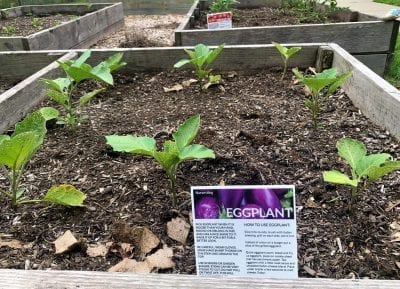By Lauren Pawlowski

Personal, financial, and health requirements may prevent you from being your most environmentally-friendly self right now, but there are still small steps you can take each day to support a more sustainable lifestyle during the COVID-19 pandemic. Health and safety is of utmost importance at this time, but if you have the time and means to do so, you can try out the following tips for living more sustainably during a pandemic.
- Use washable, reusable masks. Many people hand make them out of extra fabric or other materials and sell them on Etsy, Facebook sale pages, etc. You can also make your own, if you have free time. Wearing disposable masks every time you need to use one creates a great amount of waste that can be avoided if you are able to wash and wear reusable masks.
- Try to stick to reusable containers, towels, etc. You’ll need to wash them more frequently, but this will prevent unnecessary waste.
- Buy in bulk when you can. This reduces wasteful packaging and helps minimize grocery store visits.
- Clean up your spaces and declutter! Now’s a great time to clean out any junk drawers or messy spaces in your home. Donate these materials to Goodwill, Savers, the Salvation Army, or other organizations near you. Many of these organizations will sell the donated items if they can, or send the unsaleable materials to other processing centers for reuse or recycling. If you want a new project to tackle, repainting furniture from a thrift store can save you some money and make your stuff more meaningful.
- Spend quarantine free time reading new books – audio books and earbuds allow you to multitask while you learn. You might even get a head start on the UConn Reads book this fall, Amitav Ghosh’s “The Great Derangement: Climate Change and the Unthinkable,” which addresses climate justice from a Global South perspective. Many websites, such as Alibris and Betterworldbooks, have great selections of used books online for low prices. This saves you money while also encouraging reuse of materials! You can also choose to go paperless and tune into TV shows, YouTube videos, movies, and podcasts.
- Volunteer at a community garden, urban forestry initiative, coastal cleanup, land trust, watershed group, or other environmentally-focused organization. This can include planting, weeding, watering, harvesting, grounds maintenance and more to benefit your local community. Helping out sustainable community initiatives provides support to people in need and also the local environment.
- Get outside! Now is the perfect time to explore the great outdoors, where there is plenty of room for social distancing. Go hiking, walking, running, biking, kayaking, boating, fishing, swimming, picnicking or gardening. Travel to new places nearby or visit a local park. Get your friends and family outside to spend some time together in nature. Take a garbage bag with you to make sure you leave “nothing but footsteps” or even to clean up after others!
- Research and support sustainable brands. This can include cosmetics, clothing, household products, and more that produce durable products and are committed to protecting environmental and human health.
- Grow your own fruits and veggies, visit local farmers’ markets, and try new recipes that are meatless or more sustainable. Some farmers’ markets are still operating even in these times by offering goods for sale online or by outdoor vendors. Individual farms may have their own stores operating as well, although you should call ahead or check online for hours and restrictions. If you have free time, it could be fun to test out some new recipes with different vegetables, grains, and other ingredients that are healthy and sustainable.
- Start a compost pile. This prevents food waste from entering the waste stream in landfills, where, in CT, it will be incinerated as trash. Instead, you can use the healthy soil from the compost in your garden or for any plants you have!
Disclaimer: CDC, state, and local health department guidelines should always be followed in order to reduce the spread of COVID-19 and risk of infection. The above recommendations should not supplant health guidelines from public health agencies and the medical community. These suggestions should only be employed as they align with CDC, state, and local health guidelines.